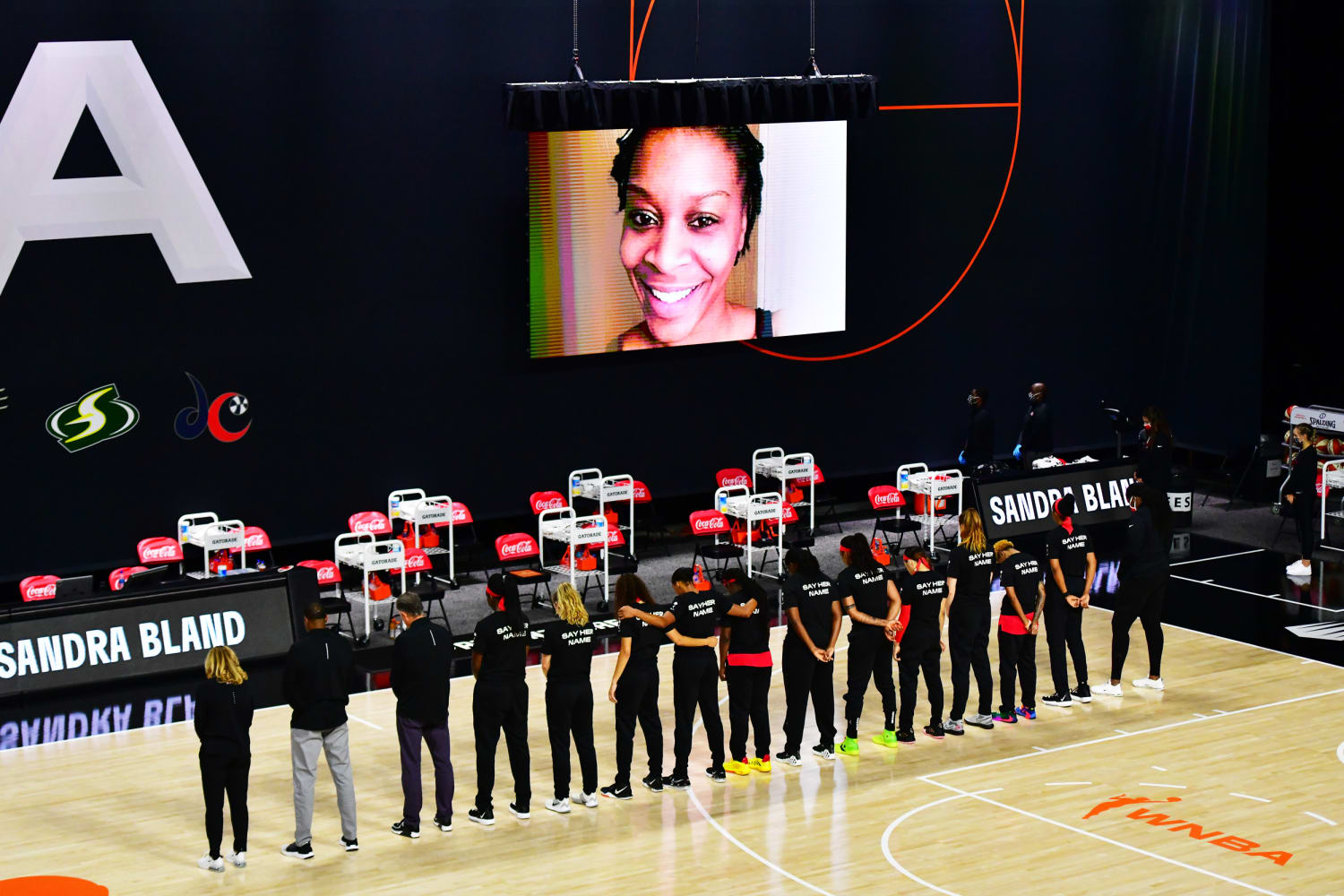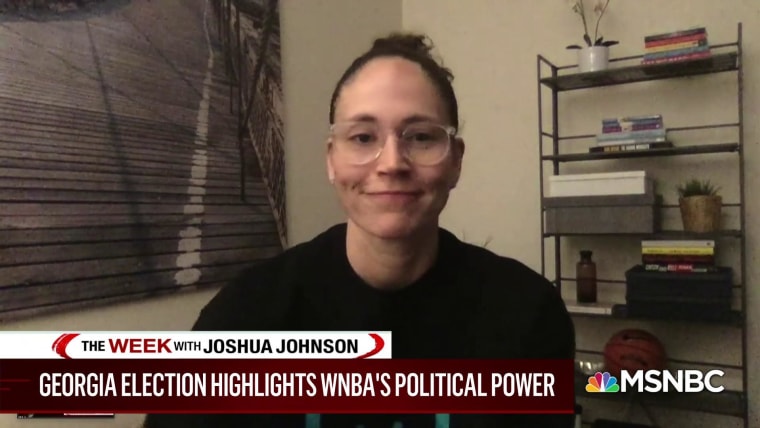Last Friday, the WNBA approved the sale of its Atlanta Dream franchise to a new ownership group. But this was no ordinary transaction between billionaire sports fans. Rather, the sale was a truly historic development in the history of American sports. Former U.S. Sen. Kelly Loeffler, a Georgia Republican, sold her share of the franchise to Larry Gottesdiener, chairman of the Northland Investment Corp.; the company’s COO, Suzanne Abair; and Renee Montgomery, a former star for the Dream and other teams who sat out last season to focus on social justice activism.
This was no ordinary transaction between billionaire sports fans. Rather, the sale was a truly historic development in the history of American sports.
Last summer, Loeffler came under fire after she chastised the league for embracing racial justice activism. In response, her own players began a public campaign for Raphael Warnock, the Democrat who defeated Loeffler in the state’s run-off elections in January. The sale of the Dream bookends a remarkable period of activism by athletes that has fully repudiated the “stick to sports” orthodoxy that has prevailed in the sports world until recently.
Loeffler, a wealthy businesswoman turned politician, had been a basketball enthusiast and team owner since 2010. But once Gov. Brian Kemp appointed her to replace Johnny Isakson in the Senate in December 2019, she quickly embraced the Trumpian brand of white grievance politics. Last July, in response to the WNBA’s decision to honor the memory of Breonna Taylor and others killed by police, Loeffler declared she “adamantly oppose[d] the Black Lives Matter political movement.” Soon after, her own players took the court wearing “Vote Warnock” T-shirts.
The players’ campaigning for Warnock seems to have had a significant impact on the Senate race. It certainly didn’t hurt the campaign — before the Dream debuted their “Vote Warnock” shirts, Warnock was polling at only 9 percent. But after the players started campaigning, his donations shot up, as did his Twitter following. In subsequent weeks, players worked hard not only on behalf of Warnock’s campaign, but on behalf of voter turnout across Georgia and in other parts of the country. Athlete activism had evolved from protest to politics and civic engagement.
This is not business as usual for professional sports in America. Individual players have clashed with owners over salaries. Players’ unions have gone on strike. Athletes have even staged symbolic protests on political and cultural topics like police violence. But we have never seen teams explicitly rebel against systemic racism and the power of management in this manner.
In 1969, the players of the Los Angeles Rams stood with fired head coach George Allen and refused to play unless team owner Dan Reeves hired him back. In 2014, NBA players spoke out against Donald Sterling, the owner of the Los Angeles Clippers after racist remarks that he had said in private were made public. His players staged a brief silent protest at a playoff game a few days later. Eventually, under pressure from the league, the players and sponsors, Sterling was forced to sell the team.
In retrospect, the Clippers’ silent protest looks tame compared to what player activists have done since then — from former NFL quarterback Colin Kaepernick’s courage to the powerful NBA player walkout following the shooting of Jacob Blake in Wisconsin last August. While Kaepernick receives much of the credit for today’s athlete activist movement, female athletes have also repeatedly rebelled against systemic racism, sexual violence and assault, and other inequities in the sports world. From the moment that the players for the New York Liberty silently protested the shooting of Alton Sterling and Philando Castile in July 2016 until the present, WNBA players in particular have been at the forefront of the current movement for social justice in the sports world.
The sale of the Dream might be a fitting climax to this tumultuous period, but it could also be the beginning of a new era in sports management. “It’s exciting when you see representation at any high level of management,” Renee Montgomery said last Friday. “There’s been a lot of talk about what would it look like for a player to be in that position. And so, I recognize that this is an opportunity not just for myself but for players as a whole and whether that’s women that are players or men, just seeing themselves differently, in a different light.”
Meanwhile, men’s sports franchises continue to wallow in their cesspools of sexism and racism. NFL franchises willfully overlook qualified black candidates for head coaching positions. In Major League Baseball, the situation seems just as toxic. Although Kim Ng became the first female general manager of a Major League Baseball franchise last fall, the recent sexual harassment cases of Jared Porter and Mickey Callaway, and the ignorant blathering of Kevin Mather, reveal how much of the sports management world continues to be an old boys network predicated on racism and misogyny.
When asked during an interview last Friday on TMZ what her first priority will be as a member of team management, Montgomery tellingly replied: “The first order of business is having the Atlanta Dream be part of the Atlanta community.”
Rather than give the standard answer of winning games or championships, Montgomery insisted that the team needs to capitalize on their off-the-court success. This remarkable statement is consistent with what we have seen from the WNBA in recent years: a vision of sports that is catalyzing a new understanding of team ownership, social justice and community accountability.
Source: | This article originally belongs to Nbcnews.com











